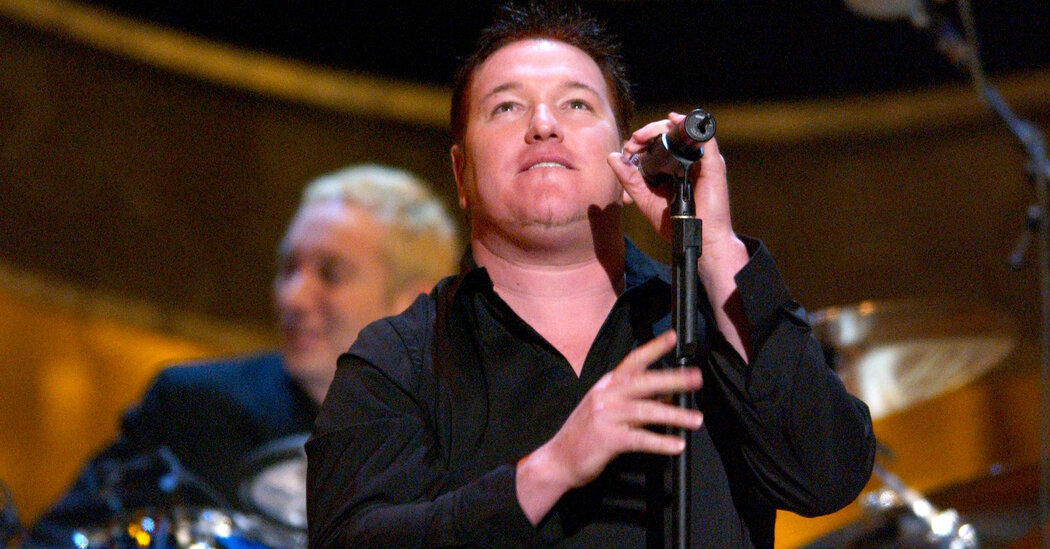
Long before it became a soundtrack nugget and an internet meme, it was just a rock band’s attempt to land a radio hit.
But the long path to evergreen status for “All Star,” the 1999 track by the California alternative band Smash Mouth, whose founding lead singer, Steve Harwell, died on Monday at age 56, is an illustration of how social media and fan-made content have transformed the music industry.
The song took shape while the group was working on its second album, “Astro Lounge,” after its first taste of success with the song “Walkin’ on the Sun” (1997). The group submitted a batch of songs to its record company and was told: “You’re not done. We don’t hear a single, so keep working,” Robert Hayes, the band’s manager, told Rolling Stone in 2019.
Greg Camp, Smash Mouth’s guitarist and primary songwriter, said the song’s lovable-loser theme (“I ain’t the sharpest tool in the shed”) emerged from fan mail. “About 85 to 90 percent of the mail was from these kids who were being bullied” for being Smash Mouth fans, he told the website Songfacts. “So we were like, ‘We should write a song for fans.’”
“All Star” was quickly placed on film soundtracks, including “Inspector Gadget” and “Mystery Men,” in 1999. (The original music video had clips from “Mystery Men,” a superhero sendup starring Ben Stiller and Janeane Garofalo, among others.)
But the song’s immortality began with its placement in “Shrek,” the 2001 animated favorite starring Mike Myers and Eddie Murphy, where the song plays in the opening credits. The film grossed a total of $484 million around the world, according to the site Box Office Mojo.
A decade or so later, generational nostalgia kicked off another level of success for “All Star,” when the children who grew up on “Shrek” began meme-ing on it relentlessly.
There was the version made up entirely of samples of Bill O’Reilly saying his name. And the one, from “The Tonight Show Starring Jimmy Fallon,” with lyrics stitched together from “Star Wars” clips.
Perhaps the most popular take was “Mario, You’re a Plumber,” a Mario Bros.-theme adaptation — with actual effort taken to write new lyrics — that has garnered 1.6 million views on YouTube.
Those were all iterations of what has become a key avenue for artists to find wide success in a fragmented media environment, with user-generated content ricocheting through social media to propel a new song (see Lil Nas X, “Old Town Road”) or point younger listeners to an old one (Fleetwood Mac, “Dreams”).
In the case of “All Star,” this process kept an old track alive for years and led to gigs like the band performing a snippet of the song on a Progressive insurance ad in 2020. All of that activity tends to drive listeners back to streaming services, and “All Star” has garnered just under a billion streams on Spotify alone.
In an interview with the music site Stereogum in 2017, Harwell expressed the contrasting opinions artists sometimes have about such memes. On the one hand, it’s valuable exposure, and that can lead to money in their pocket. On the other … it’s not always fun to have one’s work flattened into a joke.
“It’s entertaining, I get it,” Harwell said. “It doesn’t bother me, but at the same time, I don’t love it.”













